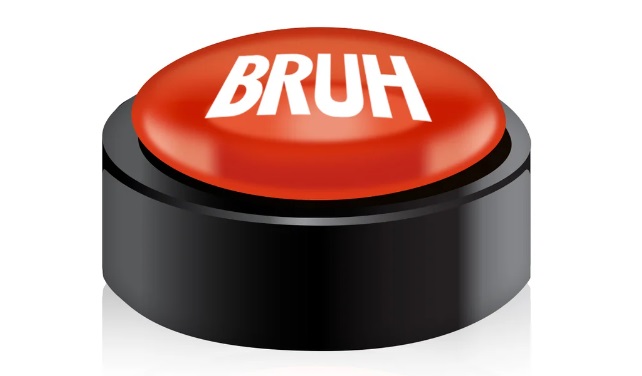
Keeping up with some modern slang words and meme formats is challenging with the ever-growing meme culture. Every day brings countless new slang words and memes that spread via social media. The usage of “bruh” has had a significant impact on meme culture and everyday slang words.
We’ll explain in detail what “bruh” means, how people use it, and who uses it the most. Moreover, we’ll cover its origin, additional meanings, and the modern “bruh” meme.
Lastly, if you’re not pleased with your child being exposed to this slang word on their social media and while texting, we’ve prepared a guide to protecting your child online. Once you’ve gone through our detailed guide on the “bruh” meaning, you’ll successfully detect and understand it and decide if you want to protect your child from it.
Table of Content
- Part 1: “Bruh” Meaning Explained
- Part 2: Origins of “Bruh” and Other Meanings
- Part 3: The Modern “Bruh” Meme
- Part 4: How People Use “Bruh”

- Part 5: Who Uses “Bruh?”
- Part 6: “Bruh” Is a Common Term Modern Kids Use
- Part 7: How to See What Slang Your Kid Uses Online

-
Lorem Ipsum is simply dummy text of the printing
Part 1: “Bruh” Meaning Explained
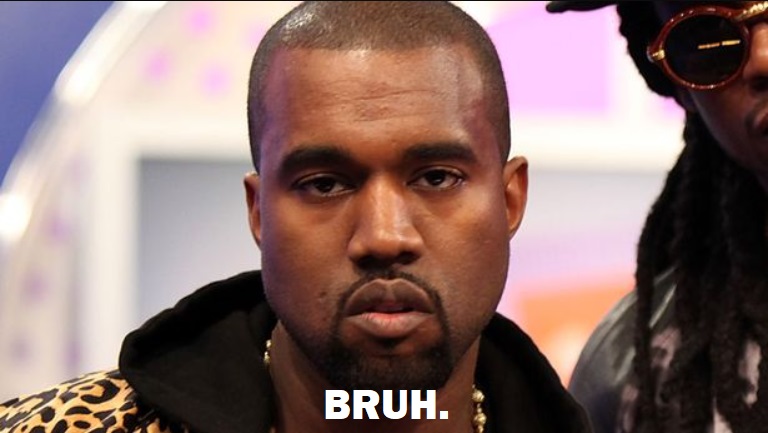
Have you been scrolling your social media or hanging out with some friends and heard “Bruh” being used a few times? You probably wonder what the meaning of it is and if it’s the same as “Bro.” “Bruh” is usually used as a reaction or a response to an embarrassing situation or to express disappointment in someone. Thus, if one of your friends says something cringe-worthy, you can hit them with a “bruh.”
For example, it can go something like this:
A friend: “Is Prince really a royal family member?”
You: “Bruh.”
However, bruh” and “bro” don’t bear the same meaning, even though they’re both shortened versions of the word “brother.” “Bro” usually expresses familiarity and friendship between two people. You can use it instead of a friend’s name to represent the closeness to that person.
Thus, even though they come from the same word, “bruh” and “bro” are not synonyms, and even though they can be, people rarely use them in similar contexts.
Part 2: Origins of “Bruh” and Other Meanings
The origin of the word “bruh” can’t be definitive, but we can look at the early records of its first online appearances. The first definition of the word appeared in Urban Dictionary in 2003, explaining the word as another way of saying “bro.” However, as a meme, people first used it around 2013.
The word gained popularity on Vine, where the user Headgraphix posted a video saying: “Bruh,” which went viral. That happened in 2014, and since then, this phrase has spread worldwide and acquired several new meanings.
Thus, depending on the tone of the word pronounced, it can convey the meaning of happiness (“I passed all my exams” — ”Bruh!”), reluctance (“Hey, can you lend me some money?” — ”Bruh…”), disgust (“I love you” — ”Bruh.”), and even compassion (“My dog died” — ”Bruh.”). That means the word “bruh” is suitable in almost any context as a response and will usually work just fine.
Part 3:The Modern “Bruh” Meme

Even though it became popular through Vine and the famous sound saying “bruh,” this word’s typical use is now a meme. The first meme we know of containing the phrase “bruh” was the picture of John Wall, an NBA player, leaning back in frustration at a basketball match.

However, nowadays, it has become a more widespread meme, where people put the word “bruh” over different pictures that, over time, become popular as “bruh” reactions that you can send even without the word over it.
Part 4: How People Use “Bruh”

People use “bruh” in numerous contexts to express:
Disappointment:
A: “I never managed to get you those tickets. Sorry about that.”
B: “Bruh.”
Happiness:
A: “Hey, my wife’s pregnant! We’re going to have a baby!”
B: “Bruh!”
Uncertainty:
A: “Hey, do you want to meet my dad? He’s an MMA fighter.”
B: “Bruh.”
Anger:
A: “Don’t freak out, but I’m dating your sister.”
B: “Bruh!”
Sympathy:
A: “My grandma died yesterday.”
B: “Bruh...”
You can also use it to refer to a close friend, for example:
A: Bruh, want to go to a party with us this Saturday?
B: Sure, bruh
Furthermore, with the constant usage of “bruh” as a term for disappointment and second-hand embarrassment, these situations became “bruh moments.” “Bruh moments” are situations where a friend or someone else has done something cringe-worthy or disappointing that caused the reaction of “bruh.” For instance:
A: Have you seen what Joe did yesterday? He asked the maths teacher out on a date.
B: I know, it was such a bruh moment.
Part 5: Who Uses “Bruh?”
“Bruh” is most commonly used in African American English as a term of endearment and closeness to the person. Some other slang words in this context besides “bruh” are mate, homie, dawg, and cuzzie.
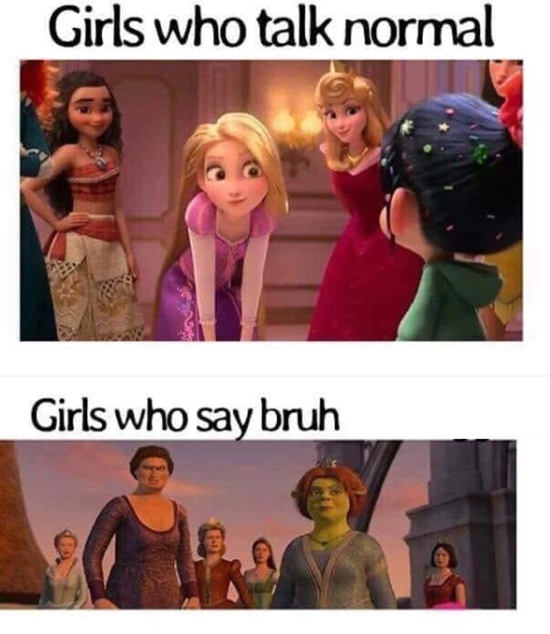
However, social media users established a particular group of women that use the word “bruh,” teasing them for not being feminine. That resulted in numerous memes for “regular girls” vs. “bruh girls.” These memes include comparison images of girls who talk normally or “hiii girls” and girls who say “bruh.”
Part 6: “Bruh” Is a Common Term Modern Kids Use

Nowadays, you can mostly see “bruh” in texting and on social media. So, what does “bruh” mean in texting? The answer is the same. “Bruh” can convey various emotions and reactions depending on the situation. That might be challenging for older generations to understand, but modern kids use it daily.
In other words, modern kids are unaware of the word’s origin and probably even of the famous Vine video that set the course of action for the word’s usage. They use it daily with friends since they’ve seen it in memes. As we all know, meme culture is highly influential today.
Additionally, there are numerous other slang words that modern kids don’t know the origin of, yet still use them quite often. These include:
- “On fleek”
- Rickrolling
- “What are those?”
- “What’s 9 + 10?”
Part 7: How to See What Slang Your Kid Uses Online
![]()
Some believe “bruh” is a rude word, and others agree it’s an informal way to address someone or express an emotion. Your child probably uses numerous safe slang words when texting with friends. However, you must be careful of other slang words your child might use.
We recommend using a parental control app to protect your child and track with whom and what they communicate on their phones. With countless apps available today, picking one that is trustworthy and gets the job done can be challenging. Therefore, our suggestion is Wondershare FamiSafe.
FamiSafe allows parents to control their kid’s screen time, track location, and, most importantly, detect inappropriate content. It can catch inappropriate pictures and text messages and block such content on the child’s device. Installing the app is straightforward, and you can do it in a few quick steps:
Step 1: Download FamiSafe on the App Store or Google Play and install it on your phone.
Step 2: Register to FamiSafe using Wondershare ID or log in using an existing account.
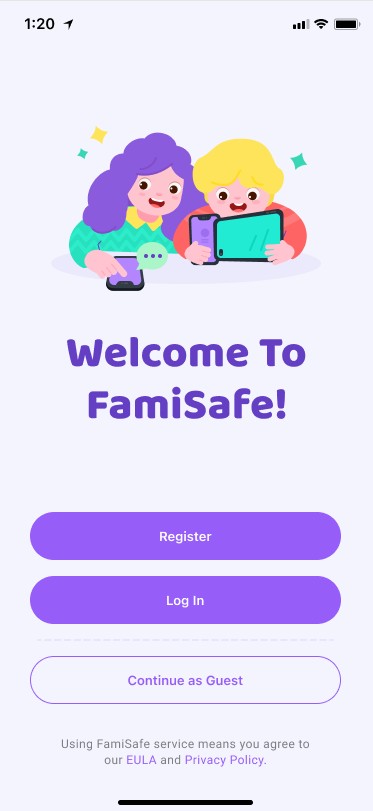
Step 3: Download FamiSafe Jr. on your child’s phone and connect the phones by entering a numerical code or scanning the QR code.
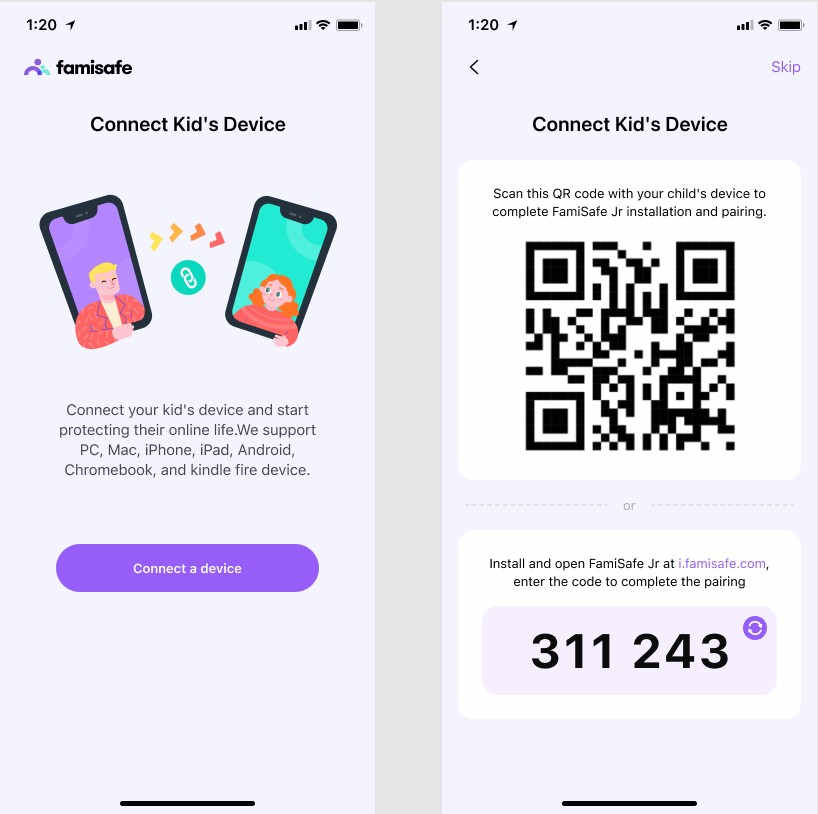
Step 4: After connecting your phone to your child’s phone, set up parental controls with the startup wizard.
Step 5: Tap the “Edit Your Statistics” button and navigate to Recent Device Activity

That’s it. With FamiSafe, you can be sure your child will be safe online by monitoring their screen time, activity, and the content available.
- Web Filter & SafeSearch
- Screen Time Limit & Schedule
- Location Tracking & Driving Report
- App Blocker & App Activity Tracker
- YouTube History Monitor & Video Blocker
- Social Media Texts & Porn Images Alerts
- Works on Mac, Windows, Android, iOS, Kindle Fire, Chromebook
Conclusion
The “bruh” meme has been circling the internet for a long time, significantly affecting the meme culture. Thus, even though “bruh” started as another word for “bro,” it has a different connotation nowadays. It can express various emotions, from happiness to anger, but its most significant usage is showing disappointment and embarrassment in a cringe-worthy situation.
Consequently, it has significantly affected the meme culture, starting from the original “bruh” meme with John Wall and spreading to various meme templates. Even though African Americans and, apparently, “bruh girls” use it the most, most modern kids use it as a common term while texting and talking to their peers.
Try Wondershare FamiSafe to track and protect your child from using this and many other slang words. That way, you’ll be at ease while your child surfs the internet and texts with friends.
